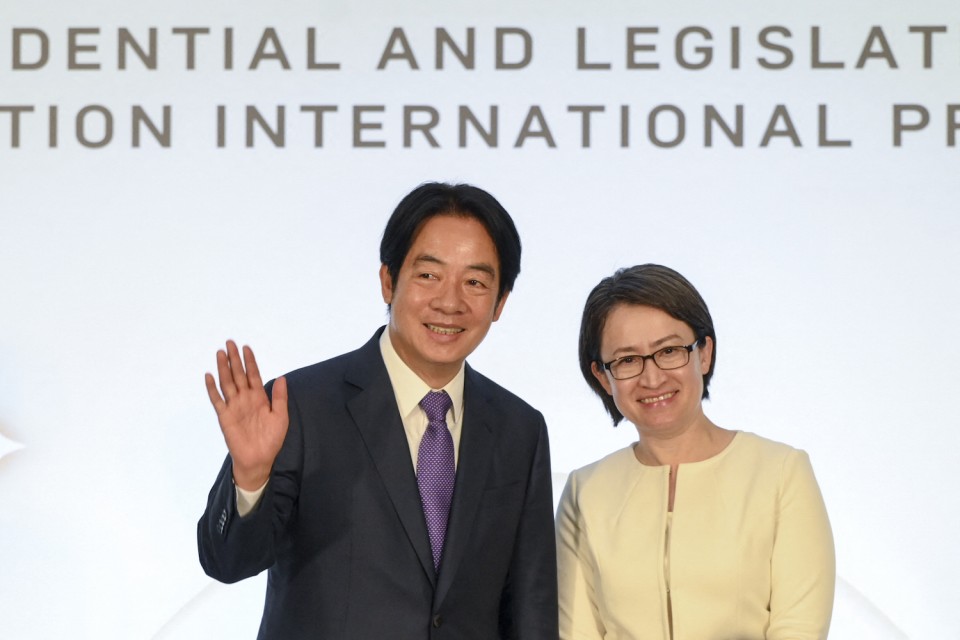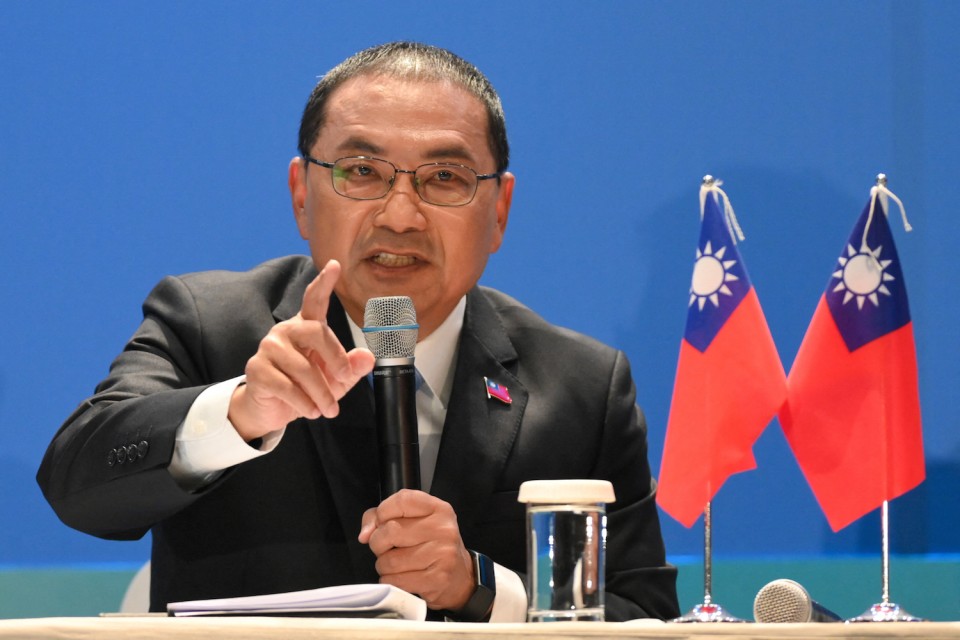
By Dene CHEN, Xinqi SU
TAIPEI, Jan 11, 2024 (AFP) – China warned Taiwan’s voters Thursday to make the correct choice in the island’s weekend elections, describing the presidential frontrunner as a “severe danger” who would threaten peace by following the “evil path” of independence.
Democratic Taiwan is two days from a pivotal election that is being watched from Beijing to Washington because the next president will determine the island’s future relations with an increasingly assertive China in a flashpoint region.
China views Taiwan as a renegade province and has never renounced the use of force to take it one day.
Vice President Lai Ching-te, the frontrunner candidate for the ruling Democratic Progressive Party (DPP), has portrayed himself as a defender of Taiwan’s democracy but has drawn ire from China in the past over comments about independence — a red line for Beijing.
China’s Taiwan Affairs Office said in a statement Thursday that if Lai “comes to power, he will further push for ‘Taiwan independence’ separatist activities (and create) turbulence in the Taiwan Strait”.
“(He) would continue to follow the evil path of provoking ‘independence’ and… take Taiwan ever further away from peace and prosperity, and ever closer to war and decline,” it said.
“We sincerely hope that most Taiwan compatriots will see the extreme harm of the DPP’s ‘Taiwan independence’ line and the severe danger of Lai Ching-te in his instigation of cross-strait conflicts.”
Taiwanese Foreign Minister Joseph Wu criticised China’s “repeated interference” in the election.
“Taiwan’s upcoming elections are in the international spotlight & (China’s) repeated interference steals the focus. Frankly, Beijing should stop messing with other countries’ elections & hold their own,” Wu posted on social media platform X on Thursday.
Lai, who had once called himself a “pragmatic worker for Taiwan’s independence”, has taken a softer line on the issue on the campaign trail.
He has chosen instead to echo current President Tsai Ing-wen’s stance that Taiwan is “already independent” and therefore does not need to formally declare it.
China cut off high-level communications with Tsai’s government over her defence of the island’s sovereignty.
Lai said on Tuesday that “as long as there is parity and dignity, Taiwan’s door will always be open” for cooperation with China.
“But we cannot have illusions about peace. Accepting China’s ‘one-China’ principle is not true peace,” he said, referring to Beijing’s doctrine that Taiwan is a part of China.

– ‘Staunch ally’ –
Lai’s opponent Hou Yu-ih of the Kuomintang (KMT) — which has long encouraged closer cooperation with Beijing — has run on maintaining peace across the Taiwan Strait, saying that Lai would be a danger to China relations.
Hou rejected the DPP’s allegation that he was “pro-China and a sell-out of Taiwan”.
“Taiwan is a democratic and free country,” he told foreign media on Thursday, stressing that he did not have “unrealistic ideas” about China’s intentions.
“No matter what China thinks… what the mainstream public opinion in Taiwan wants us to do is to maintain the status quo,” Hou said, adding that the issue of “reunification” will not be on the table if he is elected.
Chinese President Xi Jinping said in a recent address that unifying Taiwan with China is an “inevitability”.
Beijing has stepped up military pressure on the island in recent years, sending warplanes and naval vessels on manoeuvres around Taiwan.
Tsai has boosted defence spending during her two terms in office, buying more weapons from top ally the United States.
Hou said he will “not only increase our purchases… but also strengthen Taiwan-US military cooperation” if elected.
“We are happy to see the United States playing a positive role in maintaining stability in Taiwan Strait,” he said.
“No matter what happens here, the United States will forever remain a staunch ally of ours.”
Washington said on Wednesday it plans to send an unofficial delegation to Taiwan after the election, a move sure to spike tensions with China but which Hou said on Thursday was “welcome”.








